Ballet, not bullets
In a corner of Rio de Janeiro’s crime-ridden favelas, a trailblazing ballet dancer is teaching girls to plié their way out of poverty
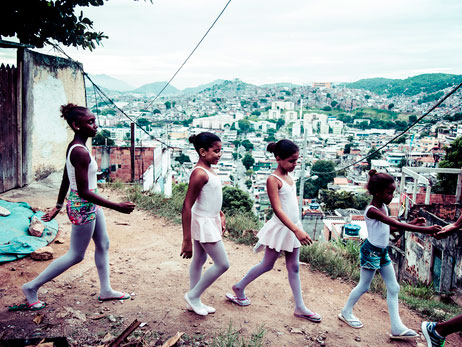
Celebrity news, beauty, fashion advice, and fascinating features, delivered straight to your inbox!
You are now subscribed
Your newsletter sign-up was successful
In a corner of Rio de Janeiro’s crime-ridden favelas, a trailblazing ballet dancer is teaching girls to plié their way out of poverty
Any Brazilian will look at you wide-eyed if you tell them you’ve visited the Complexo do Alemão favelas in Rio de Janeiro. The notoriously violent neighbourhood is home to nearly 70,000 residents and an infamous gang of drug traffickers who patrol the streets with rifles.
But in one of the quieter backstreets, a lithe 22-year-old, Tuany Nascimento, can be seen pirouetting on the scuffed-up blue floor of an open-air sports ring. ‘I always came alone to practise my ballet,’ says Nascimento, who once dreamed of becoming a professional ballerina until she turned her attention to teaching instead. ‘Whenever I came here, a girl or two would show up to watch. Soon I realised there was a demand for someone who could inspire young girls to dance.’
And so, three years ago, the Na Ponta Dos Pés (On Our Tiptoes) ballet school was born. Today, Nascimento teaches three ballet classes twice a week to 49 girls, aged four to 17, on a rundown sports court where students in dirty white ballet shoes skirt around pools of water from yesterday’s heavy rainfall. ‘My classes are about taking those 49 girls and broadening their minds for the future,’ says Nascimento.
Ballerina girls ‘If one of my 49 girls goes on to be a professional ballerina, then marvellous,’ says Nascimento. ‘But my classes are more about broadening their aspirations, so that they understand they have options outside the favela.’
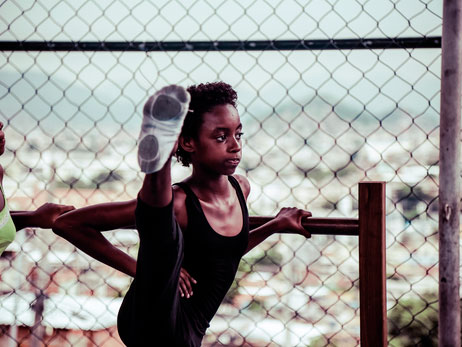
Financial lift The ballet barre (above) was rescued from an out-of-use dance studio. The programme’s only financial support has come from a small grant from a local furniture shop.
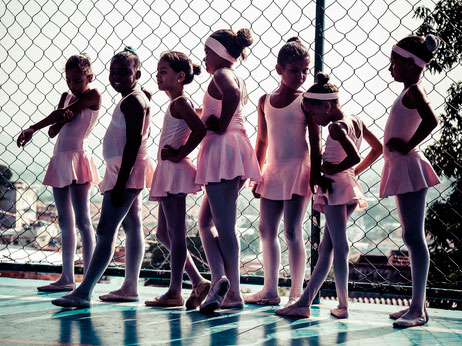
Practice makes perfect The ballet classes are held in a fenced-off complex that is mainly used for basketball and soccer.
Celebrity news, beauty, fashion advice, and fascinating features, delivered straight to your inbox!
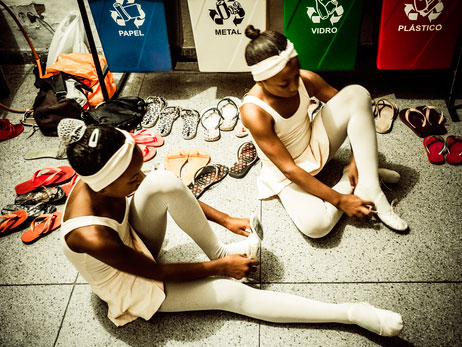
Raising the barre Two budding ballerinas (above) getting ready. The ballet school is a chance to show the police that the favelas are about more than just drug traffickers and crime.
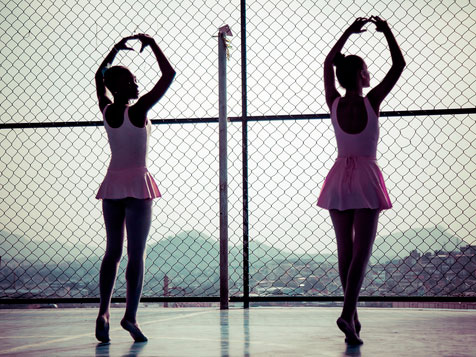
Stretching their boundaries ‘The majority of girls from the slums come to me thinking, “I want to grow up, get a job near my home, then become a mother,”’ says Nascimento. ‘They don’t have aspirations beyond the walls of the community.’
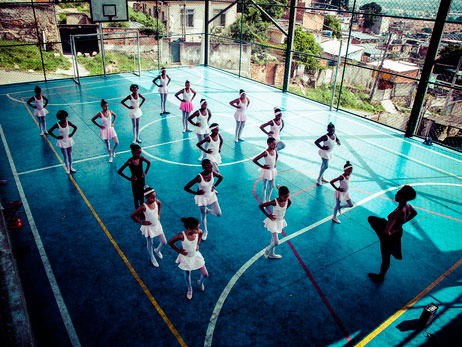
Gotta dance Students need to bring their school report cards to prove they’re enrolled in education and passing all their classes to take part in ballet practice.
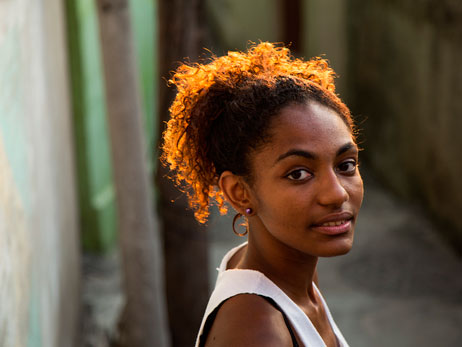
Lessons in life ‘Ballet is one of the most transformative arts,’ says Nascimento (above), who is studying physical education at Celso Lisboa college. ‘Once you are here, you follow rules, you have discipline and challenges – these are universal life lessons.’
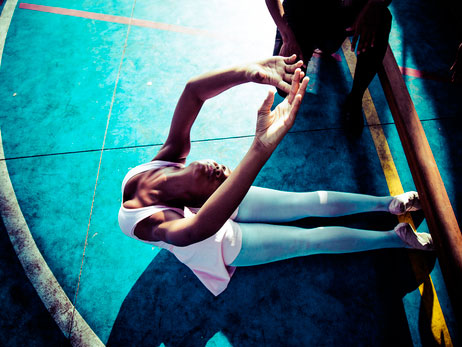
Reach for the stars ‘I want to show the girls that the world is a huge place, with so much opportunity for every one of them,’ explains Nascimento. ‘They just need to swap their weapons for ballet slippers, and dream bigger.’
For more information, visit balletnapontadospes.weebly.com
The leading destination for fashion, beauty, shopping and finger-on-the-pulse views on the latest issues. Marie Claire's travel content helps you delight in discovering new destinations around the globe, offering a unique – and sometimes unchartered – travel experience. From new hotel openings to the destinations tipped to take over our travel calendars, this iconic name has it covered.